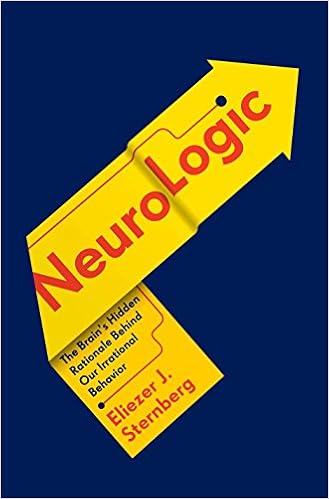 From New Scientist:
From New Scientist:
We may have a complex, scientific take on the unconscious mind, but as Eliexer Sternberg’s new book shows, explanations demand a nuance befitting the subject
Actually, we don’t know very much about the mind at all, and there has been legitimate doubt whether the “unconscious mind” exists.
The “unconscious mind” uually means an inner consciousness of which we are unaware: “Schmeazle unconsciously wanted to avoid marrying GerdyLou. That’s why he fell down the back stairs and broke his hip the night before the wedding.” Everyone but Schmeazle is apparently conscious of the reasoning powers of his unconscious. That sort of thing did fall into disrepute, for good reasons and bad ones.
We oughtn’t to confuse such a concept with the fact that we are not aware of the vast majority of our neural processes. But what lies, plausibly, in between? From Anil Ananthaswamy’s review of Eliezer Sternberg’s NeuroLogic:
Why did both the conscious and unconscious systems evolve? Sternberg doesn’t say so explicitly, but his way of delineating brain activity suggests one reason we may have evolved consciousness: to shoot down illogical stories concocted by the unconscious – which he calls an “egocentric storyteller” – that can get things wrong when the neural circuitry goes haywire.
Whoa! We don’t know what the pattern was. We don’t even know what consciousness is. If this account were correct, vast numbers of species that have a minimal self would hardly be able to function because they do not use logic. Yet they manage.
NeuroLogic sometimes feels like a series of well-written magazine articles, drawing mostly on academic case studies that are once-removed from real people and their stories. This can make the writing a bit distant, especially when the conditions described are harrowing. But occasionally we get a ringside seat, as when Sternberg describes his friend Ethan’s visceral fear on being “attacked” by an imaginary falcon conjured up by a stage hypnotist. More.
Sounds like reviewer Ananthaswamy finds the book facile, which would be no surprise. But Darwinblather, for example storytelling about the origin of the conscious mind, exists only to convey the message that Darwin was right (whatever he said), thus giving the appearance of being a person in the know without saying anything to the purpose.
A reasonable response would be: No. Darwin was wrong (whatever he said). But in any event, no more time should be wasted on claims about the evolution of consciousness in the total absence of evidence.
Possible test: How would things be any different if Janov, for example, was right and consciousness only came into existence a couple of millennia ago? He was an interesting eccentric and his view, however otherwise dismissible, poses an intriguing question.
See also: Neuroscience: Hmmmm. Freud’s unconscious returns?
and
Would we give up naturalism to solve the hard problem of consciousness?
Follow UD News at Twitter!